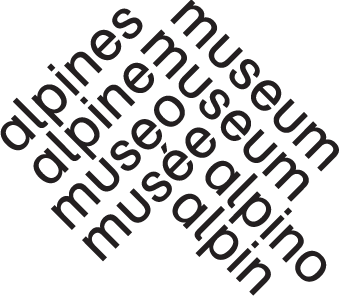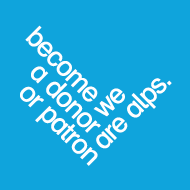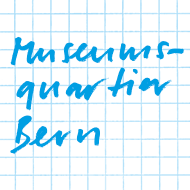On tour
Sustainable architecture from Ljubljana to Nice
Constructive Alps 2022
· Since autumn 2022 – Different cities in Europe. To the programme
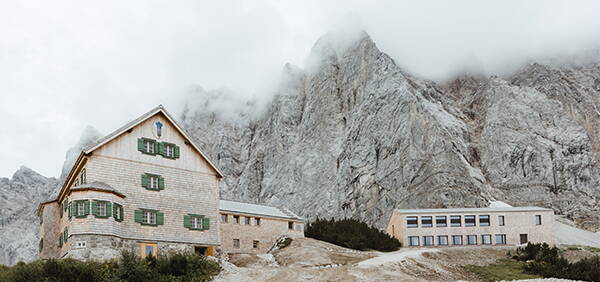
Falkenhütte © Rainer Schmid
Over thirty wooden panels give visitors some fascinating insights into sustainable construction projects throughout the Alpine arc. The homes, commercial buildings, mountain huts, and schools shown here all made it onto the shortlist of the Constructive Alps international architecture prize, which is awarded by Switzerland and the Duchy of Liechtenstein to honour sustainable renovation projects and newbuilds. The first prize went to the Schulhaus Feld school in the canton of St. Gallen, in recognition of its impressive ecological, economic, social, and aesthetic qualities. This touring exhibition, which also includes eight audio pieces by architects and residents, has already been shown in Vaduz, Berlin, Chur, Lugano and Poschiavo. As the first outdoor exhibition, «Constructive Alps 2022» was a guest in the garden of the Museumsquartier Bern in May 2023.
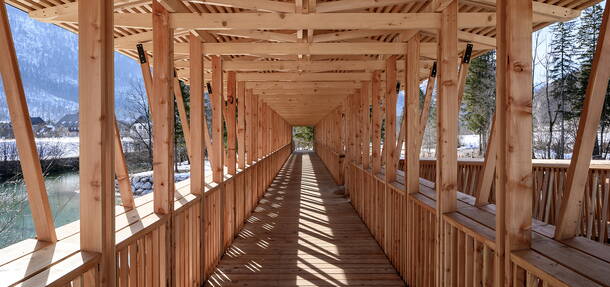
Upper picture: Project de Atelje Ostan Pavlin (Image: Miran Kambič)
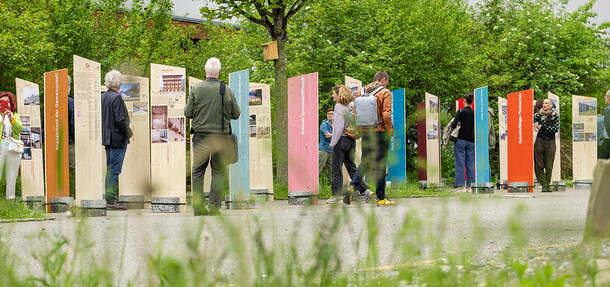
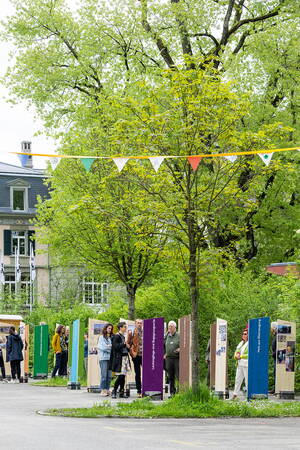
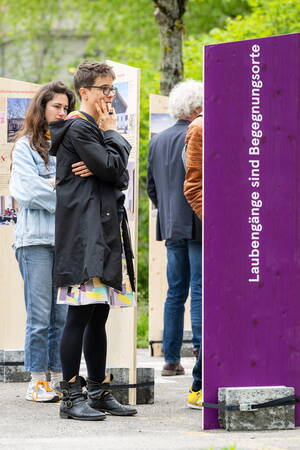
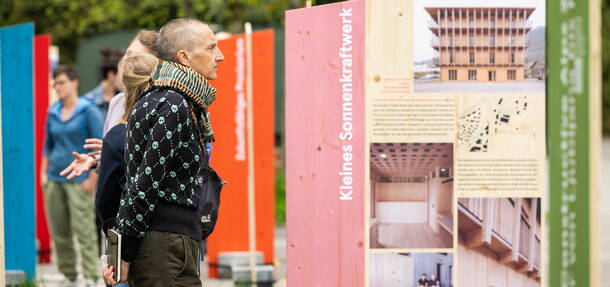
Constructive Alps 2022 Ausstellung im Garten des Museumsquartiers Bern (Foto: David Schweizer)
Let's Talk About Mountains
A Filmic Approach to North Korea
18 November 2023 to 5 May 2024 at the Deutsches Hygiene-Museum, Dresden
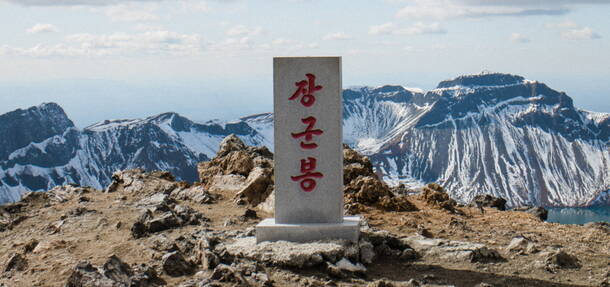
Photo: © Katharina Schelling
What do you think about when you hear “North Korea”? Totalitarian dictatorship, human rights violations, food crises, and aggressive military posturing are probably the associations that most commonly spring to mind. Yet we have less of an idea about what life is actually like for the approximately 25.5 million North Koreans, and what they think about their world. When a Swiss film team toured the Korean peninsula during a thaw in relations in 2018/19, they chose to focus on the country’s mountains for their images and interviews. The resulting conversations about people’s experiences of nature, their relationship to their natural surroundings, as well as stories about the mountains that define their identity gave rise to unique micro-stories captured on film.
The exhibition “Let’s Talk about Mountains” gives us insights into an everyday existence that rarely appears in other media. Some of these encounters are spontaneous while others are pre-arranged, but all of them are poignant and provocative when it comes to the meaning of what we are being shown and can help us understand more than we can see with our eyes alone. Do mountains and other natural spaces essentially function as private places of refuge within a totalitarian state?
In the Deutsches Hygiene-Museum, the exhibition mounted by the Swiss Alpine Museum will feature supplemental commentary aimed at adding historical context. During the partition of Germany, mountains were a shared point of reference between North Korea and the German Democratic Republic (East Germany). In the early 1980s, mountaineers from Saxony accepted an invitation to visit the North Korean mountains, where they completed some challenging new climbing routes. For East Germans, free climbing in the Elbe Sandstone Mountains represented a form of personal freedom within the centralized state of the GDR that allowed them to expand their own horizons in a country where cross-border travel was not always possible.
Curator: Beat Hächler (Swiss Alpine Museum)
Concept and film direction: Gian Suhner
Adapted and augmented version for the DHMD exhibition:
Co-curator: Andreas Geißler
Curatorial/research assistant: Kathrin Haase
